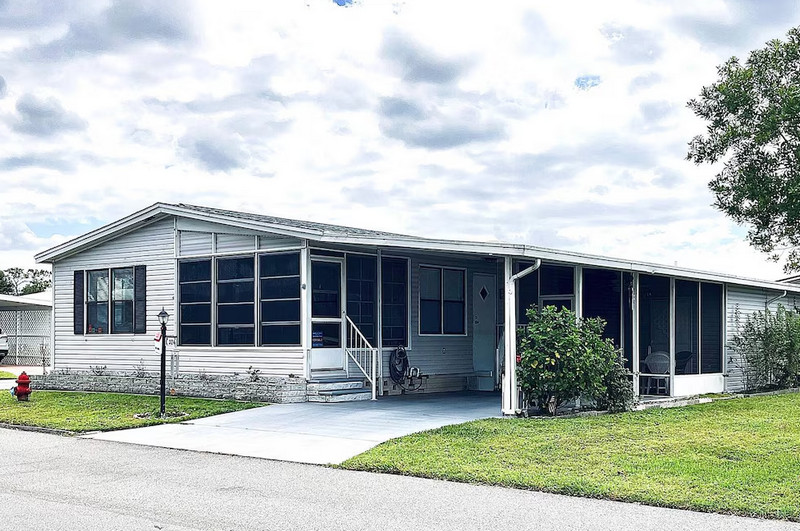Negotiating lot rents can be a daunting task for mobile homeowners in Florida, particularly as costs continue to rise in many parks. However, with the right strategies and a clear understanding of your lease agreement, you can successfully negotiate more favorable terms with park management. Here are practical tips to help you navigate the process effectively.
1. Understand Your Lease Agreement
Review Lease Terms
Before initiating any negotiations, take the time to thoroughly review your lease agreement. Understanding the terms and conditions of your lease is crucial for effective negotiation.
- Rent Increase Clauses: Identify any clauses related to rent increases. Many agreements specify how much and how often rent can be raised.
- Duration of Lease: Check the duration of your lease. Longer leases may offer more stability, while shorter leases may allow for more frequent negotiations.
- Included Services: Understand what services and amenities are included in your lot rent. This can include water, trash collection, maintenance, and access to community facilities.
Know Your Rights
Familiarize yourself with Florida’s laws regarding mobile home parks and tenant rights. This knowledge can empower you during negotiations and help you understand what is reasonable to ask for.
- Florida Statute 723: This statute regulates mobile home parks in Florida, outlining tenants’ rights and park owners’ responsibilities. Knowing this information can give you leverage in negotiations.
2. Research Comparable Lot Rents
Market Comparison
Gather data on what other mobile home parks in your area charge for lot rent. This information can help you establish a fair range for negotiations.
- Online Listings: Check real estate websites and local listings for comparable mobile home parks and their lot rents.
- Talk to Neighbors: Speak with other residents in your park or nearby parks to gather insights on their lot rents and experiences with negotiations.
Understand Local Market Trends
Stay informed about local real estate trends that might affect lot rents, such as demand, nearby developments, or economic factors. Understanding these trends can help you argue for a reasonable rate based on current market conditions.
3. Prepare Your Case for Negotiation
List Improvement Suggestions
If you have made improvements to your mobile home or the lot itself, be sure to highlight these during negotiations. Improvements can justify a lower lot rent or at least prevent an increase.
- Landscaping: If you have improved the landscaping or aesthetics of your lot, document these changes.
- Upgrades: Highlight any upgrades to utilities or structures that enhance the overall value of the park.
Build a Value Proposition
Create a list of reasons why negotiating your lot rent is beneficial for both you and the park management. Emphasizing your positive contributions to the community can strengthen your case.
- Community Stability: As a long-term resident, you contribute to the park’s stability, which benefits all residents and the management.
- Timely Payments: If you consistently pay your rent on time, emphasize your reliability as a tenant.
4. Initiate the Conversation
Schedule a Meeting
Once you’re prepared, request a meeting with park management to discuss your lot rent. Ensure you choose a time when they are likely to be receptive and open to discussion.
- Professionalism: Approach the meeting with professionalism. Treat it as a business discussion rather than a personal confrontation.
Present Your Case
During the meeting, present your case clearly and confidently. Use the data you’ve gathered to back up your requests.
- Be Specific: Clearly state what you’re asking for, whether it’s a reduction in lot rent, a cap on future increases, or additional services included in your rent.
- Listen: Allow park management to share their perspective and reasoning. Listening can foster a more collaborative environment.
5. Discuss Improvements and Amenities
Highlight Community Enhancements
If you believe improvements to the community could justify your request, be prepared to discuss these with park management.
- Shared Amenities: Discuss whether the amenities provided align with the lot rent you are paying. If certain amenities are lacking or not being maintained, this can be a valid point for negotiation.
- Maintenance Issues: If there are unresolved maintenance issues in the park, bring these to management’s attention as a basis for your negotiation.
Suggest Shared Improvements
Propose ideas for community enhancements that could benefit all residents, possibly leading to a more stable or lower rent structure.
- Community Events: Suggest organizing community events to build camaraderie among residents, which can enhance the park’s overall appeal and stability.
- Safety Improvements: Discuss any potential safety improvements, such as better lighting or security measures, that could improve the living environment for everyone.
6. Be Open to Compromise
Flexibility in Negotiations
Be prepared to compromise during negotiations. Park management may have their own constraints and may not be able to meet all your requests.
- Alternative Solutions: If they cannot lower the rent, consider negotiating for other benefits, such as enhanced maintenance services or improvements to community amenities.
- Long-Term Agreements: Consider proposing a longer lease agreement in exchange for a more favorable rent rate.
7. Follow Up in Writing
Document the Agreement
After the negotiation, summarize the key points discussed and any agreements made in writing. This creates a record that both parties can refer to later.
- Confirmation Letter: Send a follow-up email or letter thanking the management for the meeting and outlining the agreed-upon terms. This documentation can help prevent misunderstandings in the future.
Stay Engaged
Continue to engage with park management on a regular basis. Keeping an open line of communication can foster a positive relationship and make future negotiations easier.
Conclusion
Negotiating lot rents can be challenging for mobile homeowners in Florida, but with careful preparation and a strategic approach, it’s possible to achieve a favorable outcome. By understanding your lease agreement, researching comparable rents, and presenting a well-prepared case, you can confidently navigate negotiations with park management. Remember to stay professional, be open to compromise, and document all agreements for a smoother process in the future.
See Also:


